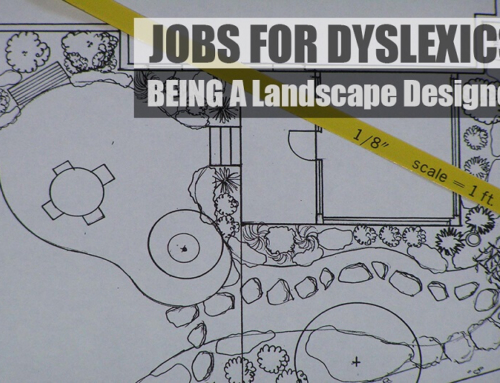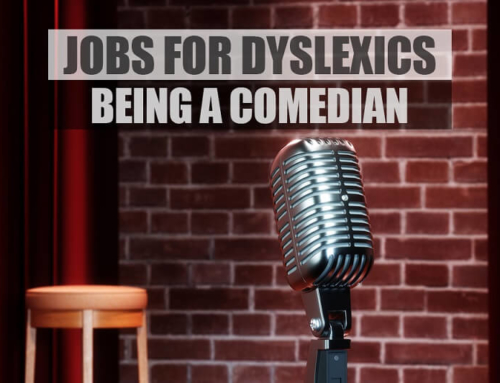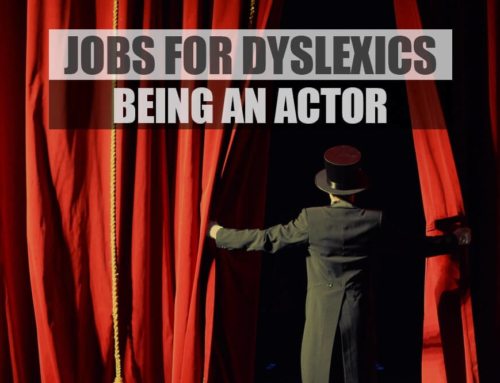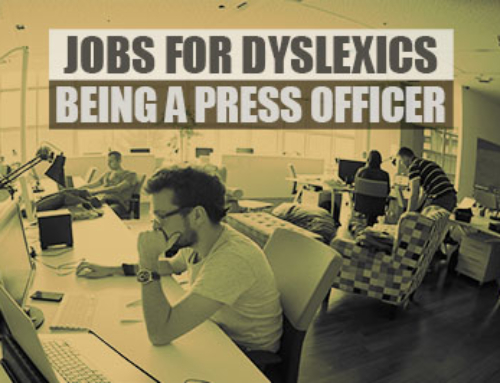DYSLEXIC STORIES FROM THE WORKPLACE THROUGHOUT DYSLEXIA AWARENESS WEEK
One of the things I find most frustrating about being dyslexic, is when things that other people seem to breeze through effortlessly, take me immense amounts of time and concentration to achieve the same goal. For instance, it would take me a good two weeks to write a college essay of the modest length of 1500 words. Whereas my classmates would knock up that same essay in their lunch break and get similar results. Nowadays, although my writing speed has improved, things like emails still take me an age, while my colleagues seem to fire off a whole batch in the time it takes them to exhale. As disheartening as this is there are plenty of situations where the advantage of speed over steady can be flipped on it’s head; where taking your time means you notice things that others miss. I think it was Ferris Buller that said, “Life moves pretty fast. If you don’t stop and look around once in a while, you could miss it”. I think he may have been right. Although my essays took me what felt like a life time to write, my tutors said they were some of the most interesting and entertaining to read. Maybe there is something to be gained by taking things slow. Noticing the little things that others miss is what many comedians base their whole careers on. As today’s guest blogger explains there are many advantages to being a Dyslexic comedian.
JOE’S STORY:
A dyslexic walks into a bra. Why dyslexics makes great comedians.
I’ve heard a lot of people call dyslexia a “gift”. If feeling inferior in school, struggling to get respect and feeling overwhelmed with the fear of looking stupid in the work place was a gift, then if guess it’s a pretty big gift. That’s what I used to think.
However it wasn’t until I started to learn a little bit more about life that I discovered that the kids in school who got A grades had grown up into adults who liked me because I am funny.
If you like the lime light, and most of us do, you will quickly discover that dyslexia has been a friend you’ve taken for granted over the years. Most people have a filter between the brain and the mouth that manages to keep weird thoughts in and turn normal logical thoughts into conversation topics. But dyslexics are not very good at this. And that’s why they are just so bloody fun to have around.
A comedian’s job is to take a normal part of every day life and twist it into a bizarre story. If this is done right, you can do it with the most terrible of things. Suddenly the Ebola virus does not seem as bad when the comedian has bitten into it, turned it into something funny,and spat out comedy gold in front of an audience.
Often, dyslexics are not trying to be funny and it certainly isn’t right to laugh when somebody is trying to put together a constructive thought. However, if you make people laugh then use it to your advantage. what can be better than making people happy? I’m not trying to sound like George Bailey from ‘It’s a Wonderful Life’ here but seriously, if you can make someone smile then do it. Dyslexia really does help with that.
I remember the day when dyslexia worked in my favour. It was March 1st 2002. I was 12 years old. It was St David’s day (oh, by the way I’m Welsh and grew up in Wales) There was a talent contest in school andI was in a junk band. For those of you who don’t know, a junk band is where you make musical instruments out of bits of junk you find. My role was the drummer. I played the drums made out of a cardboard box and some chair legs that I found on a skip behind the school. After the performance there was some feedback off the music teacher. About 300 12 year olds sat in the assembly hall and waited to hear what the music teacher had to say. My band’s review was as follows:
Music teacher: “Great energy in the band boys. Really liked the solo. Where did you get the chair legs from?”
Me: “um, we got them off a chair”
The assembly hall erupted in laughter.
Music Teacher. “Well, ask a silly question!”
That was a great day for me and it probably started my lifelong addiction to making people laugh. But (and this is my point) I wasn’t TRYING to be rude or funny. I wasn’t that type of kid. I knew she had asked that question because she thought that we had broken one of the school chairs. And I answered it in the attempt of defending myself. A non dyslexic answer would’ve been “we got it from a broken chair that we found In a skip” but because the dyslexic brain cannot process a coherent answer under pressure, the answer came as very blunt, cheeky and therefore funny.
And dyslexia doesn’t just help with comedy. Walk into any artistic district I’m your city and I guarantee you will see a lot of dyslexic people. A lot of artists, inventors, actors, writers and even scientists have dyslexia to thank for their outlook on life.
So the next time you feel down about having dyslexia, remember that you see the world differently to most people. That is a fantastic gift. Use it wisely!
Words by Josef Konderla
You can find more of Joe’s writing at http:/josefkonderla.wordpress.com/
If you like this post subscribe to this blog, join our newsletter or follow us on Facebook or Twitter to keep up to date with new content. You might also like our podcasts.
The Codpast is a multimedia production from www.extraordinaire.tv









Leave A Comment